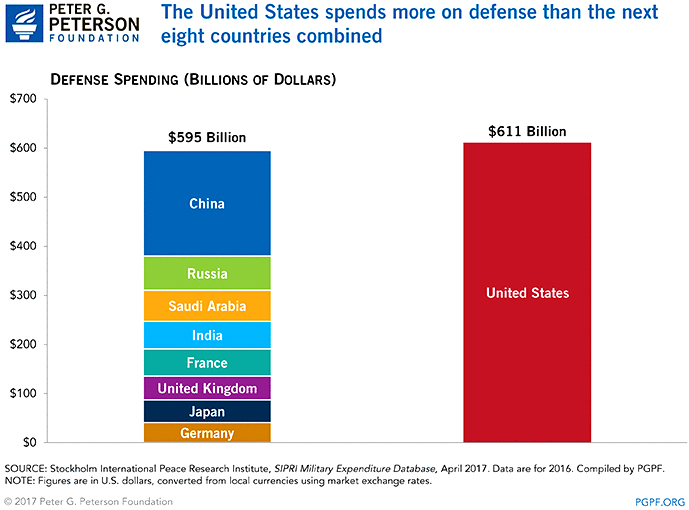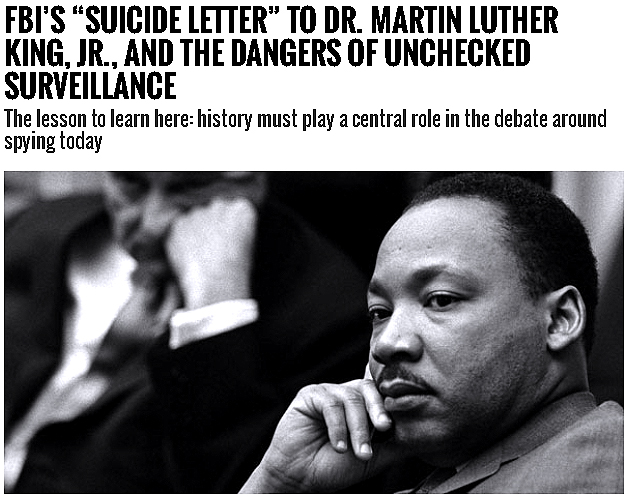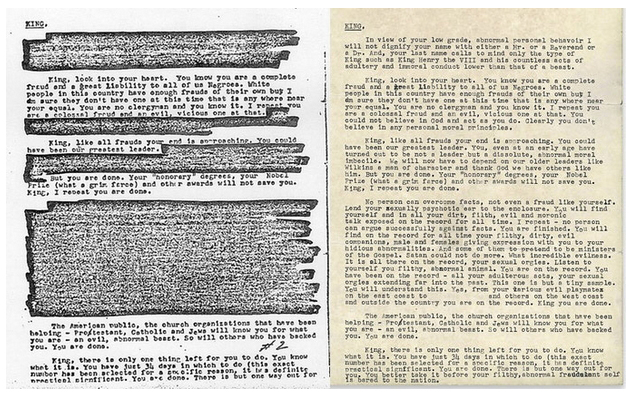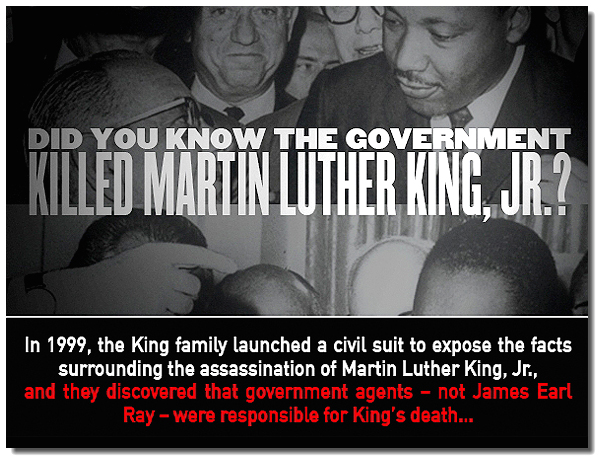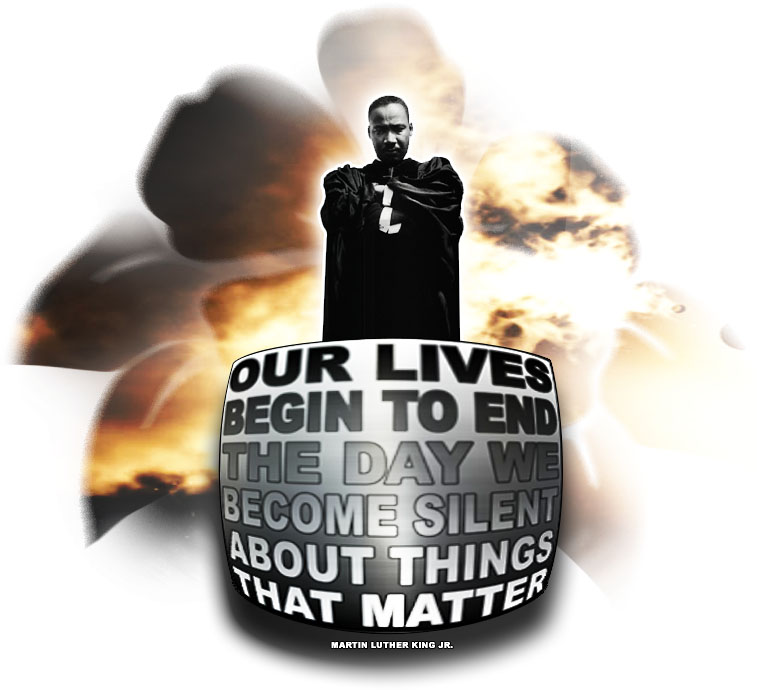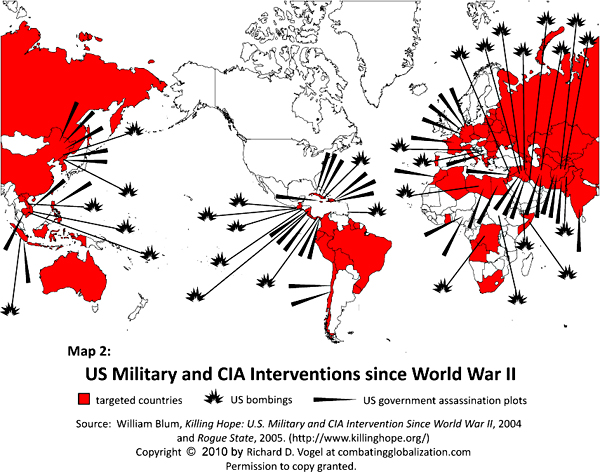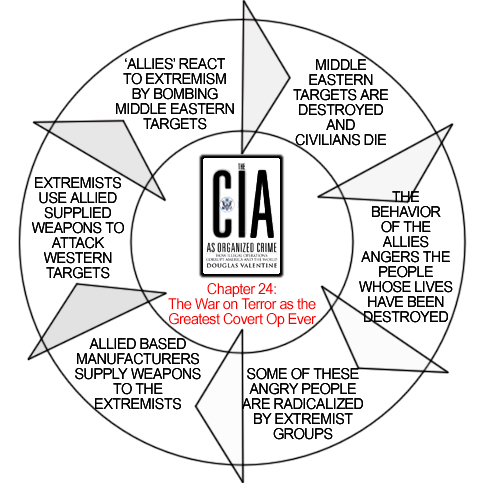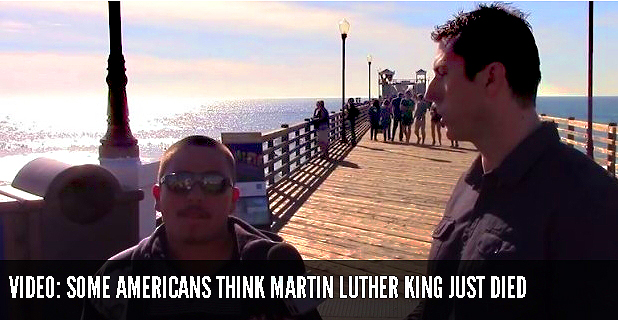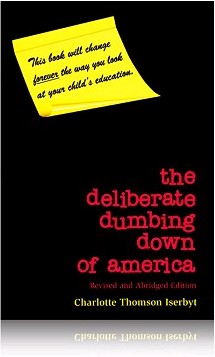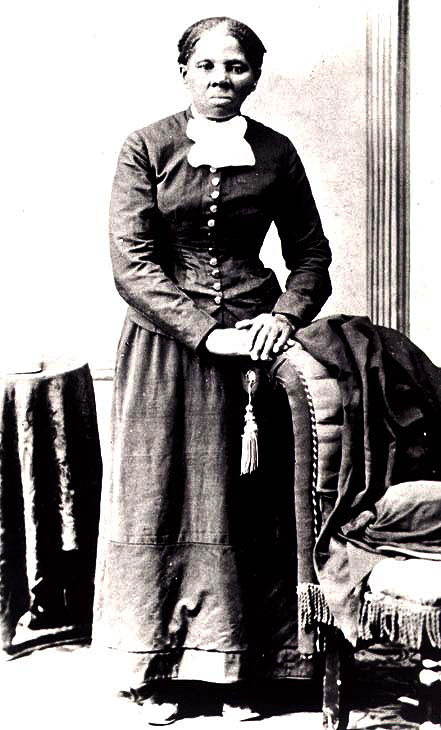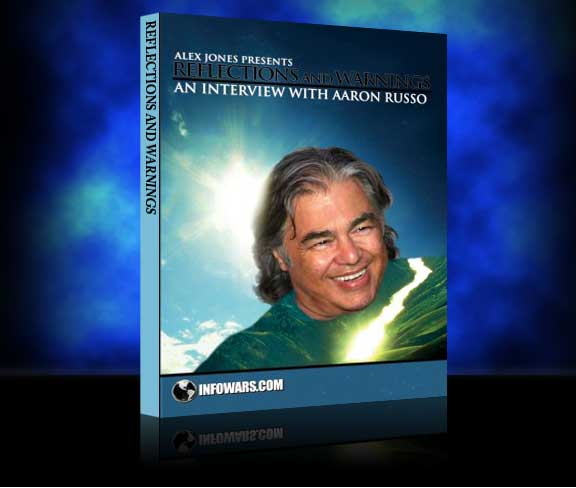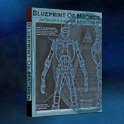welcome
|
|||||||||||||||||||||||||
“Injustice Anywhere Is a Threat to Justice Everywhere”
A Call To Action "...T he hottest places in hell are reserved for those who in a period of moral crisis maintain their neutrality. There comes a time when silence becomes betrayal. The truth of these words is beyond doubt, but the mission to which they call us is a most difficult one. Even when pressed by the demands of inner truth, men do not easily assume the task of opposing their government’s policy, especially in time of war. Nor does the human spirit move without great difficulty against all the apathy of conformist thought within one’s own bosom and in the surrounding world. Moreover, when the issues at hand seem as perplexing, as they often do in the case of this dreadful conflict, we’re always on the verge of being mesmerized by uncertainty. But we must move on. Some of us who have already begun to break the silence of the night have found that the calling to speak is often a vocation of agony. But we must speak. We must speak with all the humility that is appropriate to our limited vision, but we must speak." Martin Luther King Jr.
The past beckons us to involve ourselves
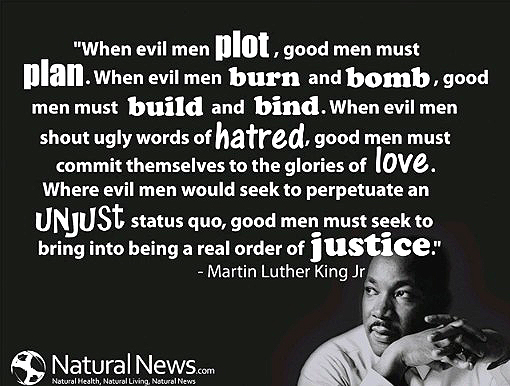
Truth At Last: The Assassination of Martin Luther King corbettreport TRANSCRIPT AND SOURCES: https://www.corbettreport.com/mlk On April 4, 1967, Dr. Martin Luther King delivered a passionate speech at Riverside
Church in New York staking out his opposition to the war in Vietnam. One year later to the day, he was
assassinated. Now, 50 years after that fateful day, the truth about the assassination of Dr. King can finally be
told.
Dr. William Pepper on the Assassination of Martin Luther King Corbett Report Extras SHOW NOTES AND MP3 AUDIO - https://www.corbettreport.com/?p=26643 An interview with Dr. William F. Pepper, Esq. on his four decade long investigation into the assassination of the Martin Luther King, Jr., and his third book on the subject, The Plot to Kill King: The Truth Behind the Assassination of Martin Luther King, Jr. This interview was conducted by Dan Dicks of PressForTruth.ca on March 10, 2018 in New York.
Martin Luther King Day 2020:
“Religion’s Answer to the Problem of Evil”
Martin Luther King Jr. 27 April 1951 In this paper for the second term of Davis's Philosophy of Religion course, King examines the explanations of ancient and modern philosophers for the existence of evil in the world. He follows Harris Franklin Rall's analysis of the problem of evil in Christianity: An Inquiry into Its Nature and Truth, concluding that "the ultimate solution is not intellectual but spiritual. After we have climbed to the top of the speculative ladder we must leap out into the darkness of faith." Davis gave King an A- and commented, "Well done."
These are questions which no serious minded religionist can overlook. Evil is a reality. No one can make light of disease, slavery, war, or famine. It might be true that God is in his heaven, but all is not right with the world, and only the superficial optimist who refuses to face the realities of life fails to see this patent fact. Evil is not rational, on the contrary it is non-rational. It is a "principle of fragmentariness, of incoherence, of mockery." It is not logical; evil is the Satan that laughs at logic.3 It is in this great inescapable conundrum that we find the "theistic dilemma." I must hasten to say, however, that the theists have not been content to pass over this problem as just another problem with no serious import; theists of all shades of opinion have been willing to face the problem with all the intellectual equipment that the human mind has afforded. At this point we may turn to a critical discussion of those solutions most often set forth in the modern world. In conclusion I will present what I feel to be the most adequate solution to this pressing problem. Modern Answers (1) First there is the position that moral evils result from the human misuse of freedom. Certainly this position has much weight, and cannot be easily cast aside. Nevertheless, human freedom leaves many aspects of evil, even of moral evil, unexplained. With Dr. Brightman we would have to raise the following questions. Why are there in the nature of things, independent of human choice, so many temptations and allurements of evil choices? And why are the consequences of some evil choices so utterly debasing and disastrous? Is it just to ascribe all of the sins and vices of poverty-stricken refugees or unemployed families to their own freedom, or even to all human freedom put together?\[Footnote:] Brightman, A Philosophy of Religion, p. 260.\ This seems to be putting too much weight on the back of human freedom. Freedom may explain much of moral evil, but it fails to explain physical evil. Moreover, it does not explain the force of temptation or the debasing consequences of moral evil.4 (2) A second view explains physical evils as a punishment for moral evils.5 Such a view rests in the principle of retribution. This view goes back to the old Deuteronomic idea that prosperity follows piety and righteous, while suffering follows sin. Even in the days of Jesus we find traces of this theory. Hence the question is put to Jesus: "Who sinned, this man, or his parents, that he should be born blind."\[Footnote:] John 9:2\ The most rigorous expression of this viewpoint is found in India's ancient doctrine of Karma. Karma means literally deed. Suffering is explained as the consequence of a man's deeds, whether committed in this present life or in some previous existence. Views of this variety continue to exist in the modern world. But such views are repugnant to the ethical sense of modern idealist.6 Does a good God harbor resentment? Does perfect love achieve its purpose in such cruel ways? This crude theory was rejected long ago by the writer of the book of Job and by Jesus (according to John 9:3). The whole theory of punishment as a solution of the problem of evil collapses with a series of ethical objections.7 (3) A third view explains nonmoral evils as disciplinary rather than penal. Here the purpose of evil is to reform or to test rather than to punish. It is quite obvious that this view cannot be totally rejected. Who can deny that many apparent evils turn out in the end to be goods in disguise. Character often develops out of hardship. Unfortunate hereditary and environmental conditions often make for great and noble souls. Suffering teaches sympathy.8 But is this the whole story? We must answer with an emphatic no. Character is not always developed through hardship. Unfortunate hereditary and environmental conditions do not always make for noble spirits, they more frequently make for resentful, depressed and hopeless living. A more serious criticism of this view is pointed out very cogently by Dr. Brightman. He argues that if discipline is the purpose of all evil, and God is both omnipotent and just, then disciplinary evils should meet at least two conditions, viz, (1) they should appear wherever they are needed and only where they are needed and (2) they should be perfectly adapted to their ideal end. It is perfectly clear that neither of these conditions is met.9 Says Brightman: "Disciplinary evil fail to appear for the moral education of the world's worst characters; and the innocent and already over disciplined victims of these very characters receive repeated superfluous and unjust disciplines. Even if all evils were wisely and justly disciplinary and none were wasted unjustly, the second condition would remain unsatisfied. When one contemplates the actual evils of a wind storm at sea, the experiences of freezing and starving, or the symptoms of syphilis or arteriosclerosis, it would be most extravagant to assert not only that these experiences may be disciplinary, but also that they are the most perfect means to the ideal ends of personal and social development that an infinitely good and powerful imagination could devise. As a philosophical explanation of evil, the appeal to discipline entails incoherence so far-reaching that it cannot serve its purpose."\[Footnote:] Brightman, op. cit., p. 263.\ In the final analysis we must reject the disciplinary theory because it fails to give a true picture of the whole. It only faces the problem piecemeal. Any explanation of the problem of evil must (at least any adequate explanation) present evidence that fits all the facts and is contradicted by none. (4) There is a fourth position which explains evil as incomplete good. Absolute idealist like Hegel and his followers have been strong proponents of this view. They have insisted that the true is the whole, and that a partial view of anything is inadequate and irrational. Many patches of color within a painting are ugly; but the entire painting is beautiful. This argument on the surface seems quite cogent, yet if we probe deeper we find that its cogency depends on whether or not every whole is necessarily good. From incompleteness alone, the goodness of the complete cannot be derived. In fact such a view boils down to inane speculation. It is as logical at some points to argue that good is incomplete evil as it is to argue that evil is incomplete good.\[Footnote:] Brightman, op. cit., p. 264.\ The question of whether the whole is good or evil must therefore be settled on other grounds than the incompleteness of our experience.10 Moreover, even if the whole could be proved to be good, the question would still remain as to whether destructive means justify constructive ends. As Dr. Rall laconically states, "the Christian faith which follows Jesus in his belief in the sacredness of a moral personality cannot let even God (God, indeed, least of all) use human beings as mere means to some supposedly higher ends."\[Footnote:] Rall, Christianity, p. 316.\11 (5) Another view, quite similar to the foregoing, advances the idea that evil is needed as a contrast to good. Proponents of this view argue that no one would appreciate the goodness if all were good; indeed goodness could not even be defined if there were nothing by way of contrast.12 So from this point of view evil is not an unfortunate blot which the finished can't help having; the blot is essential to its beauty; the artist deliberately put it there; it is an element contributing to the perfection of the whole, like those momentary discords in a symphony which enhance the total harmony. Presumably, then, in the eternal order of things pain and sin are nothing to worry about; they are as necessary to its perfection as are beauty and joy and virtue, Like the dark places in Rembrandt's pictures, they make the high lights possible. There are many objections to this view, in fact they are too numerous to mention at this point, but at least we may allude to two. First, this theory implies that God not only permits evil (which is obviously true), but that he deliberately creates it; He purposely does evil that good may come. Now we may ask as we did in our criticism of the theory of the absolute idealists, does the means justify the end? We must conclude that the argument that the end j justifies the means is as morally unjustified for God as for men. Again, if the existence of evil is necessary to the good of the whole, will it not be a mistake to try to get rid of evil? To lessen evil would surely be to lessen the good of the whole; presumably the universe would be less perfect if its evil were removed; and therefore suffering men need not strive to change anything; all their high moral aspirations all their dreams of betterment, are vain; which is absurd. This theory defeats its own ends. (6) In sharp contrast with the view which justifies all evil as good is the view that evil is unreal. It is "maya" or illusion; it is "error of mortal mind." This view has its strongest proponents in Christian Scientists and Hindus. Objections to this are obvious, but two must suffice here.13 First: if the natural order in so far as it seems evil is nonexistent, the next step is to deny the existence of the natural order as good. If all nature is illusion there is no good reason for believing anything to be objective. Second: even if evil is error it is just as harmful as it would be if it were objective; the problem is not solved, it is merely pushed one stage further back.14 "Errors of mortal mind" would still be a problem clamoring for solution. As Dr. Whole so cogently states in a criticism of this theory, "To say that all suffering is a delusion of man's mind would be to make the existence of the mind the worst of evils; there is not much to choose between pain that is objectively real and mind which necessarily imagines the pain that tortures it."\[Footnote:] J. S. Whole, The Christian Answer to The Problem of Evil, p. 2115\ The Doctrine Of A Finite God We may consider in a special group those who have found a solution to the problem of evil by setting forth a limitation of the power of God. They believe that in the face of evil God must either be lacking in power or goodness; they choose the former.16 The historical root of theistic finitism is to be found in plato. For him God's will is confronted by limits set by the uncreated discordant and disorderly aspects of being. "God is not the cause of all things, but only of the good things."\[Footnote:] Rep. II, 380 c.\ This is explained more fully in the Timaeus, where divinity is represented, not as omnipotent creator of all, but simply as a good God who desires "that, so far as possible, all things should be good and nothing evil." What is the meaning of "so far as possible?" It simply means that God's will did not create the conditions under which it worked, but "took over all that was visible, seeing that it was not in a state of rest, but in a state of discordant and disorderly motion," and "he brought it into order out of disorder."17 Plato's view of God is then clear. God is a will for good, not infinite but finite, limited on the one hand by rational principles of order and control (Philebus) and on the other by "discordant and disorderly motion" (Timaeus) which he finds in existence.18 We find something of this view in Nicholas Berdyaev, who was the great modern exponent of the theology of the Orthodox Chruch. His system seems to be through and through dualistic. He sees a duality in man, in the world and even in God Himself. This duality has a non-rational basis, an element of the inexplicable. Speaking in mystical language, he declared that God himself is born out of the divine Nothing, the Ungrund. The duality in God is not that of good and evil, but rather a conflict between equally good values; yet there enters in an uncreated, non-rational element which is basic or or elemental in the universe. In the resultant conflict is found the source of evil in the world.19 Berdyaev's views of freedom are quite important in his overall explanation of evil. In his The Meaning of History Berdyaev argues that history is a product of three factors: human freedom, n natural necessity and divine Grace. Now the usual teaching of "positive" theology is that the first and second factors are derived from the latter; i.e., God made nature and man, giving to man the power to use nature's resources and his own faculties well or ill, as he chose. Thsi theology, thinks Berdyaev, is a prolific source of atheism, for freedom is admitted to lead to sin and, for at least a great proportion of mankind, to eternal punishment; and yet God, foreseeing these terrible consequences, bestowed this fatal gift upon his ignorant and unsuspecting creatures! In contrast to this teaching of "positive" theology, according to which God the Creator himself is eternally born out of a dark abyss of deity or divine Nothingness; and man and universe are then created by God out of the same ultimate, indeterminate metaphysical stuff from which he himself proceeds. Since non-being is of the very essence of the primal stuff, freedom is uncreated, co-eternal with God, and man may be described as the child of two parents: God, the formative agent in the process, and "meonic freedom," the passive stuff which simply "consented" to God's creative act. The element of uncreated freedom in man's nature is the source of his instinctive urges and creative powers; it is also the source of his ability to rebel against God and resolve himself back into the chaos of non-being. So that freedom is here with its noble possibilities as well as its tragic elements. But so also is "fate or destiny, i.e., nature, the solidified, hardened outcome of the dark meonic freedom." Thus we have a God who is limited by a nonrational ultimate which is the source of tragedy and suffering.20 We also find the idea of a finite God in the thinking of John Stuart Mill. Says he, "If the maker of the world can do all that he will, he wills misery, and there is no escape from the conclusion . . . Not even on the most distorted and contracted theory of good which was ever framed by religious or philosophical fanaticism, can the government of Nature be made to resemble the work of a being at once good and omnipotent. The only admissible theory of Creation is that the Principle of Good cannot at once and altogether subdue the powers of evil, either physical or moral; an incessant struggle with the maleficent powers, or make them always victorious in that struggle, but could and did make them capable of carrying on that fight with vigor and with progressively increasing success."\[Footnote:] Three Essays On Religion, pp. 37-39.\21 In recent times this idea of a finite God has been set forth by E. S. Brightman and W. P. Montague. For both God is the creative power working thought the evolutionary process. But for both it is equally clear that this power is limited or hindered. For Montague God is not an omnipotent monarch, but "an ascending force, a nisus, a thrust toward concentration, organization, and life." But there is a world of finite existences "that in God which is not God," in God yet each with "its measure of a self-affirming spontaneity or primary causality, and also its inertia or passivity." God's will is pure and good, but it is finite. As a mind God is infinite, extending through the whole universe. As will he is finite, "a self struggling to inform and assimilate the recalcitrant members of his own organism or the recalcitrant thought of his own intellect."\[Footnote:] Belief Unbound, pp. 74, 83, 84, 91.\22 For Brightman the problem of evil is especially acute. Holding that the only existent reality is personal (finite persons and the infinite), he can account for moral evil by the freedom given to men, but not for evil in the physical universe. From this point Brightman comes to the conclusion that the will of God is pure and good, but there is something within God that hinders the expression of his will. God finds within himself, as a part of his nature, a "Given," an element that is irrational, passive, and resistant.23 To clarify this point we may refer to Brightman's own words. Says he: "God's will, then, is in a definite sense finite. But we have called him `finite-infinite.' Although the power of his will is limited by the Given, arguments for the objectivity of ideals give ground for the postulate that his will for goodness and love is unlimited; likewise he is infinite in time and space, by his unbegun and unending duration and by his inclusion of all nature within his experience; such a God must also be unlimited in his knowledge of all that is, although human freedom and the nature of The Given probably limit his knowledge of the precise details of the future."\[Footnote:] Brightman, op. cit., 337.\ There are numerous criticisms that have been raised against these theories of a finite God, but three will suffice at this point (1) Its anthropomorphism. Here it is argued that belief in a finite God humanizes him too much. (2) Its failure to absolve God of responsibility for creation. This is probable the strongest objection to the theory of theistic finitism. Here it is argued that if God is regarded as a creator, however finite his power, he must still be held responsible for having created man, knowing that man would necessarily suffer from surd evils. (3) Its dualism. Each of these theories break down into dualism. Brightman and Montague might escape a cosmic dualism, but they fall right back into the dualistic trap by setting forth a dualism in the nature of God.24 But dualism affords no real answer to the problem of evil. With such a view faith in a supreme God is endangered and the triumph of good left uncertain. Toward a More Adequate Solution After a brief resume of the most frequently discussed views on the problem of evil in the modern world, we now turn to a discussion of the view which I feel to be a more adequate solution to this difficult problem. In this view I have attempted to look at the problem in all of its complexity, avoiding as far as possible any piecemeal solutions. I have attempted to deal with both moral and physical evil, feeling that any discussion of one without the other is inadequate and fails to meet the philosophical demand for coherence. Our first task in any adequate solution of the problem of evil is to give a new consideration to the ideas of goodness and power as they refer to God. It seems that at this point philosophers have often been as shallow as popular writers; and that often the high insights of the Christian faith have been lacking in the discussions of theologians. (1). What do we mean by the goodness of God? The word "good" is not limited here, as it often is in the popular speech, to mean kind, or gracious. It affirms that God possesses every excellence that can belong to a personal spirit, unmixed with evil, unweakened by defect, unsurpassable in degree. The goodness of God is, indeed, as tender as that of a mother, as patient as a father's love. But this love is ethical, redemptive, creative. Dr. Rall has written something at this point that is quite significant. Says he; "His goodness is good will, that is, it is a high and fixed purpose aiming at the supreme good of man. It is redemptive and therefore set against all evil. It is creative: It is goodness at work, active, unswerving, sparing no toil or pain in itself or in its object, seeking to give its own life to this creature man, not intent or granting pleasure and sparing sorrow, but rather on the creation in men, and the sharing with men, of its own life, the life of truth and wisdom, of holiness and love."\[Footnote:] Rall, op. cit., p. 323.\King's footnote should have cited Rall, Christianity, pp. 323-324. If we are to deal adequately with the problem of evil we must come to some such view of the goodness of God. (2). What, we must ask next, is our conception of the power of God? Probably in all our thinking about God our thoughts at this point have been most shallow. So careful a philosopher as C. E. M. Joad settles the question in such an offhand manner as this: "Pain and evil are either real or unreal. If they are real then God, who, being omnipotent, was bound by, no limitations and constrained by no necessities, willfully created them. But the being who willfully creates pain and evil cannot be benevolent." If evil is due to man, he argues further, remember man is a creature of God. If man was not evil to begin with but willfully generated evil, then how can man coming from God have a will of his own which is not also a part of God's will?\[Footnote:] Joad, Mind and Matter, p. 119.\25 Such a view of God's power certainly needs clarification. It seems to imply that power is abstract, irresistible, and externalistic. How then are we to think of God's power? We are never to think of God's power in terms of what he could conceivably do by the exercise of what we may call sheer omnipotence which crushes all obstacles in its path. We are always to think of God's power in terms of his purpose. If what he did by sheer omnipotence defeated his purpose, then, however startling and impressive, it would be an expression of weakness, not of power. Indeed, a good definition of power is "ability to achieve purpose. This applies to the power of a gun, or a drug, or an argument, or even a sermon! Does it achieve its end? Does it fulfill its purpose? We must realize that God's power is not put forward to get certain things done, but to get them done in a certain way, and with certain results in the lives of those who do them. We can see this clearly in human illustrations. My purpose in doing a crossword puzzle is not to fill in certain words. I could fill them in easily by waiting for tomorrow morning's paper. Filling them in without the answers is harder but much more satisfying, for it calls out resourcefulness, ingenuity, and discipline which by the easier way would find no self expression. Similarly, to borrow an illustration from William James, eleven men battle desperately on a field, risking falling and injury, using up a prodigious amount of energy, and when we ask why, we learn that it is to get an inflated, leather covered sphere called a football across a goal. But if that is all, why doesn't someone get up in the night and put it there? Football games are not played to get a ball across a goal, but to get it there under certain conditions, in a certain way, with certain results in the lives of those concerned. Power to get the ball across the goal is to be interpreted in terms of purposes and only makes sense in the light of those purposes. Action, then, which defeats purpose is weakness. Power is the ability to fulfill purpose. No one knows what it cost God to refrain from intervention when wicked men put his beloved Son to death. But the restraint was not weakness. The Cross became the power of God unto salvation. And now the outline of our problem begins to grow clear. We cast aside as inadequate all naive puerile conceptions of God's goodness and power. Our problem now is to discover the purpose of God and see if that purpose is being carried out in the world of our everyday existence. Now its seems that any theist would accept the fact that God's purpose is to achieve the good in the world and in the lives of men. If the good can never be handed over as a finished product to a passive recipient, if it can only be an achievement, then a good world will be one which is adapted for such attainment. Then our great question is: What kind of world is fitted for the attainment of God's purpose? (1). In a world where good is to be achieved, there must be freedom. This is most obvious in the case of man. In reality the whole idea of morality and religion presupposes the existence of freedom. Thomas Huxley once said that "if some great power would agree to make me think always what is true and do what is right on condition of being turned into a sort of clock, I should instantly close with the bargain. The only freedom I care about is the freedom to do right; the freedom to do wrong I am ready to part with."\[Footnote:] {Collected Essays I, 192.}\26 But freedom to do only what is right is not freedom; it is mechanical coercion. A being incapable of wrong is also incapable of right; he is not a human being at all but an automatic machine. Huxley's hypothesis nullifies his conclusion, because its sells the birthright of human personality. A much more profound remark is that of Lessing: "If God held in His right hand all truth, and his left only the ever-active impulse to search for truth, even with the condition that I must always make mistakes, and said to me `Choose!' I should humble bow before His left hand and say, `Father, give me this. Pure truth belongs to Thee alone."27 Freedom is necessary for human personality. It is from the misuse of this freeing that the dark shadow of moral evil appears. The necessity of freedom brings the possibility and practical inevitability of sin. Most of the ills in the world today could be eliminated if knowledge was the only factor needed. We could conquer poverty, for there is "enough and to spare" for all. We know enough, if we would only work together, to wipe out all plagues. We could have decent living conditions for all if we used only the means that went into one item, the preparation of war. The difficulty, however, does not lie here. It is selfishness, pride, greed, lust for power and love of pleasure--in a word it is the sin of man that is the source of our ills and much of our unhappiness.28 Yet if God's purpose is to be achieved freedom must be maintained. Just as a child cannot learn to walk without the possibility of falling, man cannot learn the ways of God without the possibility of going wrong. Dr. Whale has put this whole idea in words well worth our quoting. He says, "freedom--though it involves grievous error and pain--is the very condition of our being human. There can be no other way for men and women called of God to vindicate the moral order. We cannot have it both ways. It is only in a world where the horror of war, slavery, and prostitution can happen, that the learning of self-sacrifice, fellowship, and chivalry will happen. Indeed if God were to suppress the possibility of moral evil, He would be doing evil, for He would be preferring the worse to the better."\[Footnote:] Whale, op. cit, p. 49-50.\ (2) A world fitted for the achievement of life must be one of order, and an order that is universal and dependable.29 By order we mean that all things have their own specific nature and behave accordingly, and that they will always and everywhere behave the same way. H2O, for example will always be water. Water will always be water. Water will always become vaporous with heat; it will always condense as it becomes colder; becoming still colder and solidifying, it will expand as ice. Upon that order depends fertile fields, pleasant streams, equable climate, power for man's use, and indeed the very existence of life. At the same time its inevitability may mean tornados and flood and destruction in which the good suffer with the evil.30 But such a universal order is the sine quo non of a moral world, it is the only basis on which moral achievement can be built.31 If our environment were a chaos rather than cosmos, and if we never knew within reasonable limits what was going to happen next our lives would be a nightmare, not merely because it would be unpleasant but because it could have no moral meaning. Moreover if t there were no order in the world reason could not develop in man, for man's reason develops in response to the reason, or order, that is in the universe. Again without this order science could not be possible, for science is simply the discovery of order and its setting forth in terms of what we call natural laws.32 And finally it is the presence of such order that, while it brings certain evil, at the same time makes possible their overcoming. So that destructive floods may be part of the order of nature, but the knowledge of this same order of nature makes it possible to halt forest destruction, impound waters, and change the process from destruction to service.33 Now we can see that the gains of an orderly universe far outweigh the losses. The possibility of physical evil is necessary for the existence of order, while the existence of order is necessary for the achievement of all higher life. So it seems that while freedom is responsible for moral evils, order is r responsible for physical evils; the possibility of moral evil is necessary for the existence of freedom while the possibility for physical evil is necessary for the existence of order. This is not to say that evil is really good, or that the existence of evil is necessary to God. Conclusion The existence of evil in the world still stands as the great enigma wrapped in mystery, yet it has not caused Christians to live in total despair. The Christian religion has offered men a way for the overcoming of evil through insight and faith and a life in right relations with God and man.34 It is right and inevitable to attempt to come to an intellectual solution of this problem. Rall, Christianity, p. 343: "It is inevitable and right that men seek all possible light on this darkest of problems." Men of all ages and all religions have set out on this difficult venture. Yet some of the proposed solutions are no solutions at all. To deny the reality of evil is all but absurd. To posit the existence of another cosmic power opposed to God is taking a speculative flight which can have no true philosophical grounding. To suggest a finite God as a solution to the problem is to fall in the pit of humanizing God.35 The discussion which we have offered above on this dark problem seems to me to shed more light on the problem than most of the familiar theories; It maintains the triangle of the sovereignty of God, the goodness of God, and the reality of evil, attempting to shed new light on each of these old corners of the triangle. Yet with all of the new light that has been shed on the old problem we still come to a point beyond which we cannot go. Any intellectual solution to the problem of evil will come to inevitable impasses. The ultimate solution is not intellectual but spiritual. After we have climbed to the top of the speculative ladder we must leap out into the darkness of faith. But this leap is not a leap of despair, for it eventually cries with St. Paul, "For now we see through a glass darkly; . . . but then shall I know even as I am known."36 The Christian answer to the problem of evil is ultimately contained in what he does with evil, itself the result of what Christ did with evil on the cross.
The Mystery of Evil and the Miracle of Life - Ravi Zacharias - This lecture by Christian philosopher and apologist Ravi Zacharias deals with the struggles of human existence in regards to the evil that is constantly going on around us, to us, and in us.
- Ravi Zacharias at Johns Hopkins -
Why Suffering? Finding Meaning in our Difficult World Ravi Starts @ 9:22 Published on Apr 28, 2015 Are you dealing with pain or suffering today? Do you wonder why God allows suffering in the world? Find encouragement as Ravi Zacharias talks about his new book, “Why Suffering? Finding Meaning and Comfort When Life Doesn’t Make Sense.”
Has Suffering Buried God? -- Dr Vince Vitale -- Published on Nov 18, 2016 A talk at Arizona State University, March 2016
The Why? Series https://www.youtube.com/playlist?list=PLamW4K9v1K-kdtZ2MVdsvKerRhU2sqxb6
"You have taken my companions and loved ones from me; the darkness is my closest friend." -- Psalms 88:18 -- How to deal with dark times - Tim Keller HTB Church ‘Prayers [like Psalm 88] indicate God’s understanding: he knows how people
speak when they’re desperate; he identifies with us in our suffering.’
Recommended books on suffering:
Audio Bible https://www.biblegateway.com/audio/mclean/niv/Genesis.1 https://www.biblegateway.com/audio/mclean/kjv/Gen.1
---------------------------------------------------------------------------------------
THE PLAYLIST COVERS:
- What about pain that we don't understand? - How did God deal with the problem of evil?
---------------------------------------------------------------------------------------
The Problem of Evil: A Christian Response InspiringPhilosophy Join us at: http://www.inspiringphilosophy.org To help support this ministry click here: https://www.patreon.com/inspiringphil... This is a long explanation for why there is evil, and how it is understood in a Christian Worldview. [Click YT Button For Sources]
---------------------------------------------------------------------------------------
THE BOOK OF JOB The Bible Project Check out our podcast series on Job! It's one of our favorites:
<<<<< EXPLORE >>>>>
...Perhaps if the Foreign Relations Committee hadn’t been so afraid of “the big forces” controlling America, a large percentage of the almost 60,000 American soldiers and 2 million Vietnamese people wouldn’t have lost their lives. Sadly, modern day elected representatives have failed the American people in exactly the same way over the wars in Afghanistan and Iraq. -
Excerpt From Article Below -
- Full Speech - waketheherd
BEYOND VIETNAM - Full Speech - Servant2All Many folk have heard that the Reverend Doctor Martin Luther King, Jr. made the comment that the U.S. government [was/is] "the greatest purveyor of violence in the world today". This was in context to a speech delivered on April 4, 1967 at Riverside Church in New York City - exactly one year before his untimely death. Though not as well-known as his other speeches, this is one of the ones that speak deeply to my soul. Because of a few "blips" in the audio, I tried to include include the entire speech to be read along with the speech. It was, however, longer that what is allowed here. SO.. you can see this embedded video AND read the speech on my blog here: http://4amoreperfectunion.blogspot.co...
SIR! NO SIR!
In the 1960’s an anti-war movement emerged that altered the course of history. This movement
didn’t take place on college campuses, but in barracks and on aircraft carriers. It flourished in army stockades,
navy brigs and in the dingy towns that surround military bases. It penetrated elite military colleges like West
Point. And it spread throughout the battlefields of Vietnam. It was a movement no one expected, least of all those
in it. Hundreds went to prison and thousands into exile. And by 1971 it had, in the words of one colonel, infested
the entire armed services. Yet today few people know about the GI movement against the war in Vietnam.
http://www.infowars.com/military-revolt-against-obamas-attack-on-syria/ Obama Now Global Head of Alqaeda!
LINKS : Troops Protect Government Drug Dealing U.S. Military Killing Its Own Troops!
LINK:
History of False Flag Terrorism
Published on Oct 2, 2012 Darrin McBreen exposes the history of government sponsored terrorism known as false flag operations. Includes Operation AJAX, The Gulf of Tonkin and the false flag attack on the USS Liberty.
De-classified Vietnam-era Transcripts Show Senators Knew Gulf Of Tonkin Was A Staged False Flag Event Elected Reps. chose to hide details from American public for fear of reprisals from “the big forces” that run the media and the presidency Steve Watson
Over 1,100 pages of previously classified Vietnam-era transcripts released this week by the Senate Foreign Relations Committee highlight the fact that several Senators knew that the White House and the Pentagon had deceived the American people over the 1964 Gulf of Tonkin incident. The latest releases, which document skepticism over the pretext for entry into the Vietnam war, date from 1968.
It would take over thirty years for the truth to emerge that the Aug. 4, 1964 Gulf of Tonkin incident, where US warships were apparently attacked by North Vietnamese PT Boats – an incident that kicked off US involvement in the Vietnam war – was a staged event that never actually took place. However, the records now show that at the time senators knew this was the case. In a March 1968 closed session of the Foreign Relations Committee, Senator Albert Gore Sr. of Tennessee, the father of former vice president Al Gore, noted: “If this country has been misled, if this committee, this Congress, has been misled by pretext into a war in which thousands of young men have died, and many more thousands have been crippled for life, and out of which their country has lost prestige, moral position in the world, the consequences are very great,” Senator Frank Church, Democrat of Idaho, said in an executive session in February 1968: “In a democracy you cannot expect the people, whose sons are being killed and who will be killed, to exercise their judgment if the truth is concealed from them,”
Other senators were keen to withhold the truth about Tonkin in order not to inflame public opinion on the war: Senator Mike Mansfield, Democrat of Montana, stated, “You will give people who are not interested in facts a chance to exploit them and to magnify them out of all proportion.” Mansfield was referring to the proposed release of a committee staff investigation that raised doubts over whether the Tonkin incident ever took place. The committee decided in the end to effectively conceal the truth, with Senator Church noting that if the committee came up with proof that an attack never occurred, “we have a case that will discredit the military in the United States, and discredit and quite possibly destroy the president.” He also noted that if the senators were to follow up on their skepticism over Tonkin, “The big forces in this country that have most of the influence and run most of the newspapers and are oriented toward the presidency will lose no opportunity to thoroughly discredit this committee.” The LBJ Presidential tapes, declassified and released in 2001, prove that LBJ knew the Tonkin incident never happened. After dressing down his Defence Secretary Robert McNamara for misleading him, Johnson then discussed how to politically spin the non-event and escalate it as justification for air strikes. “You just came in a few weeks ago and said they’re launching an attack on us – they’re firing at us,” Johnson tells McNamara in one conversation, “and we got through with the firing and concluded maybe they hadn’t fired at all.” The NSA also deliberately faked intelligence data to make it appear as if two US ships had been lost in the “attack”. Johnson used the 1964 false flag event to expand dramatically the scale of the Vietnam War by ushering in the Gulf of Tonkin Resolution, as well as to rope in much needed domestic support with the Congress and public. Perhaps if the Foreign Relations Committee hadn’t been so afraid of “the big forces” controlling America, a large percentage of the almost 60,000 American soldiers and 2 million Vietnamese people wouldn’t have lost their lives. Sadly, modern day elected representatives have failed the American people in exactly the same way over the wars in Afghanistan and Iraq.
All Wars Are Bankers' Wars
Written and spoken by Michael Rivero. The
written version is here: http://whatreallyhappened.com/WRHARTI...
LINKS:
Big Military Spending Boost Threatens Our Economy and Security by Ron Paul (Excerpt From The Article) ...Unfortunately President Trump seems to be incapable of understanding that it is US intervention and occupation of foreign countries that creates instability and feeds terrorism. Continuing to do the same thing for more than 17 years – more US bombs to “stabilize” the Middle East – and expecting different results is hardly a sensible foreign policy. It is insanity. Until he realizes that our military empire is the source of rather than the solution to our problems, we will continue to wildly spend on our military empire until the dollar collapses and we are brought to our knees. Then what?
DON'T BE A PAWN IN THEIR NWO GAME UNDERSTAND WHAT'S GOING ON - RESEARCH : USMC MAJOR GENERAL SMEDLEY BUTLER LINK:
Government Drug Dealing! The US military is in Afghanistan for two reasons. First to restore and control the world’s largest supply of opium for the world heroin markets and to use the drugs as a geopolitical weapon against opponents, especially Russia. That control of the Afghan drug market is essential for the liquidity of the bankrupt and corrupt Wall Street financial mafia. ...The second reason the US military remains in Afghanistan long after the world has forgotten even who the mysterious Osama bin Laden and his alleged Al Qaeda terrorist organization is or even if they exist, is as a pretext to build a permanent US military strike force with a series of permanent US airbases across Afghanistan. The aim of those bases is not to eradicate any Al Qaeda cells that may have survived in the caves of Tora Bora, or to eradicate a mythical “Taliban” which at this point according to eyewitness reports is made up overwhelmingly of local ordinary Afghanis fighting to rid their land once more of occupier armies as they did in the 1980’s against the Russians.
LINK: Troops Protect Government Drug Dealing
FBI’s “Suicide Letter” to Dr. Martin Luther King, Jr., and the Dangers of Unchecked SurveillanceThe lesson to learn here: history must play a central role in the debate around spying todayby EFF.org | January 19, 2015The New York Times has published an unredacted version of the famous “suicide letter” from the FBI to Dr. Martin Luther King, Jr. The letter, recently discovered by historian and professor Beverly Gage, is a disturbing document. But it’s also something that everyone in the United States should read, because it demonstrates exactly what lengths the intelligence community is willing to go to—and what happens when they take the fruits of the surveillance they’ve done and unleash it on a target.The anonymous letter was the result of the FBI’s comprehensive surveillance and harassment strategy against Dr. King, which included bugging his hotel rooms, photographic surveillance, and physical observation of King’s movements by FBI agents. The agency also attempted to break up his marriage by sending selectively edited “personal moments he shared with friends and women” to his wife.
Portions of the letter had been previously redacted. One of these portions contains a claim that the letter was written by another African-American: “King, look into your heart. You know you are a complete fraud and a great liability to all us Negroes.” It goes on to say “We will now have to depend on our older leaders like Wilkins, a man of character and thank God we have others like him. But you are done.” This line is key, because part of the FBI’s strategy was to try to fracture movements and pit leaders against one another. The entire letter could have been taken from a page of GCHQ’s Joint Threat Research and Intelligence Group (JTRIG)—though perhaps as an email or series of tweets. The British spying agency GCHQ is one of the NSA’s closest partners. The mission of JTRIG, a unit within GCHQ, is to “destroy, deny, degrade [and] disrupt enemies by discrediting them.” And there’s little reason to believe the NSA and FBI aren’t using such tactics. The implications of these types of strategies in the digital age are chilling. Imagine Facebook chats, porn viewing history, emails, and more made public to discredit a leader who threatens the status quo, or used to blackmail a reluctant target into becoming an FBI informant. These are not far-fetched ideas. They are the reality of what happens when the surveillance state is allowed to grow out of control, and the full King letter, as well as current intelligence community practices illustrate that reality richly. The newly unredacted portions shed light on the government’s sordid scheme to harass and discredit Dr. King. One paragraph states:
And of course, the letter ends with an ominous threat:
There’s a lesson to learn here: history must play a central role in the debate around spying today. As Professor Gage states:
Rare Video of Martin Luther King, Jr. on Civil Rights and Peace
Martin Luther King Interview
"But the judgment of God is upon the church as never before. If today's church does not recapture the sacrificial spirit of the early church, it will lose its authenticity, forfeit the loyalty of millions, and be dismissed as an irrelevant social club with no meaning for the twentieth century. Every day I meet young people whose disappointment with the church has turned into outright disgust." -- MLK --
"Woe to you, teachers of the law and Pharisees, you hypocrites! You give a tenth of your spices--mint, dill and cummin. But you have neglected the more important matters of the law-- Justice, Mercy and Faithfulness..." -- JESUS ALMIGHTY --
Chuck Baldwin on the Tony McGhee's show on 10/23 Published on Oct 29, 2014 Chuck Baldwin talks to Tony McGhee about the 501c3, the American Church, the new Barna Group study, and also the Liberty Church Project http://LibertyChurchProject.com
Does Geography Determine
Faith? Bonus: Frank also refutes the popular "what about those who never heard" objection against Christianity. Don't miss this podcast! Find us this podcast @ iTunes: http://bit.ly/CE_Podcast_iTunes
The Rescue
In just a few weeks most of us will be hovering over a gastronomical feast preparing to eat much more than we should, appropriately celebrating the generosity of God towards us that is much more than we deserve. Not long after, we will celebrate the most sublime example of that generosity, the greatest reason for giving such hearty thanks just weeks before—God come down. God getting low. God with us. Emmanuel. Christmas starts the story of Jesus, the greatest tale ever told. But it is not really a tale at all, because the story is a true one. It is the most important part of the true Story of Reality. What follows is an excerpt from The Story of Reality—How the World Began, How It Ends, and Everything Important that Happens in Between. In this part of the Story I answer the second of the two most important questions anyone could ever ask about the remarkable man from Nazareth: Why did He come? It is a question there is far too much confusion about, even for those who call the Story their own. To answer that question I first want to tell what Jesus did not come to do. Then I want to tell you why He did come. It’s captured in the most important Christmas verse in the Bible you will never see printed on a Christmas card and you will never hear recited at a Christmas pageant. It tells of a rescue operation that formally started at Christmas, but ended in a dark event decades later. It tells the reason Jesus was born. It tells the reason God came down. The Rescue Now to our second question: What did Jesus come to do? Since there is more debate on this than there ought to be, we must first correct a misunderstanding. Sometimes knowing what Jesus did not come to do is almost as important as knowing what He did come to do, because a wrong understanding of the first can lead to confusion on the second. So let us be clear. Jesus did not come to help us get along, or teach us to take care of the poor, or to restore “social justice.”[1] To some, this assertion is a bold stroke, since they have been told just the opposite. This is because there are many noble people who are drawn to Jesus for His moral excellence (as they should be). However, often their admiration of His civic virtue has distracted them from a more important matter. Their mistake is thinking that Jesus came principally to teach us how to live a better life. He did not. God had already sent many before with the kind of advice we need to hear, and there was no point in His personally coming down merely to repeat what had already been said. No, Jesus came for a different reason. What I am going to say next will come as a shock to some, but here it is. You can eliminate every single thing Jesus ever said in His life about the poor and social justice, and still you will not undermine His main message one bit. As severe as that may sound, this is precisely what one of Christ’s closest followers actually did. The Gospel of John is the last biography written on Jesus, and it came to us from His last surviving Apostle, the “beloved” disciple John, a member of Jesus’ intimate inner circle. Many think it the most elegant summary and most definitive statement of who Jesus was and what He came to do. Yet you can read from John’s first sentence to his last and you will not find a single word about helping the poor or restoring social justice. Not one. In John’s lone reference to the poor, Jesus is actually somewhat dismissive of them.[2] That is not because He doesn’t care about them, but because He is comparing their situation with something far more important. This observation about John’s account in itself seems enough to make the point about Jesus’ focus, but let’s go a bit further. Jesus gave four major discourses—the Sermon on the Mount, the Bread of Life Discourse, the Olivet Discourse, and the Upper Room Discourse.[3] Only in the first does He mention the poor at all. Yet even here there are two qualifiers you must keep in mind. First, in His Sermon on the Mount Jesus commends not the poor per se, but rather the poor in spirit. To them, He says, belongs the Kingdom of Heaven. There is a reason the Kingdom belongs to them—not because they are poverty stricken (their income is irrelevant to Jesus), but because they are morally broken and they know it.[4] That is what “poor in spirit” means. Picture the tax collector in Jesus’ parable—hardly a destitute man—beating his breast pleading, “God, have mercy on me, a sinner.”[5] This man proclaiming his spiritual poverty goes away justified, Jesus says, while the Pharisee, whose spiritual arrogance clouds his genuine spiritual need, does not. The second qualifier I want you to keep in mind about Jesus’ comments on the poor is this. In the vast majority of cases where Jesus mentions the poor, He does so not to commend the poor as such, but to make a point about something else—hypocrisy, a widow’s generosity, Zaccheus’s repentance, the rich young ruler’s confusion, or a lesson about the afterlife.[6] Even when He mentions them, the plight of the poor simply was not the focus of Jesus’ teaching. Now, we must not conclude from this that Jesus didn’t care about the poor and so we need not care, either. He cared very much about them, and the Story has much to say about their situation. Do not miss, though, that He also cared about the rich and powerful. Jesus helped everyone and anyone who came to Him—poor beggar or prostitute, wealthy tax collector or Pharisee. The divide for Jesus was not between the poor and the rich, but between the proud and the repentant, regardless of income or social standing. Miss that, and you miss everything. These are the facts we must face if we are to get Jesus right. “Social justice” is not the Gospel. It was not Jesus’ message. It was not why He came. His real message was much more radical. Jesus’ teaching—and the Story itself—focuses on something else. Not on the works of Christians, but rather on the work of Christ. That is what the Story teaches.
And so our question remains: Why did God come down? What was the reason He became a man? What did He come to earth to do? The Story tells us. I want you to think for a moment about what the Story says about Christmas. Now when I say “Christmas,” I am not speaking of any of those things that usually come to mind when you think about the birth of Christ. I do not want you to think, for example, about shepherds or wise men or stables or mangers or anything like that. Those things all have their place, but they have nothing at all to do with my point. I am talking about something in the Story you probably have never noticed. I want you to consider the most important Christmas verse in the Story that you will never see on a Christmas card, and you will never hear in a Christmas pageant because it is not in the accounts of Jesus’ birth at all. In fact, it does not appear anywhere in the record of His life. Instead, you find it in a dark and foreboding passage that speaks of blood and sacrifice and death. It is a section of the Story recounting a ghastly, grisly system of slaughter where bulls and goats were bled out, their innocent lives forfeit on behalf of others who were the guilty ones. Now, I think it is obvious to just about everyone that animals can never really pay for people at all. The system of sacrifice God gave to the Hebrews, as important as it was, served only as a kind of sop, a temporary measure to cover man’s moral wound for the moment. It would never do in the long run, and it was not meant to. No, man owes the debt, and in the long run man, not creatures, must pay. And only a sinless man—someone with no debt of his own—could cover the debt of another. And only a man who was more than a man could ever pay for the sins of multitudes. And this brings us to the most important Christmas verse you will never hear on Christmas. Here it is: Therefore, when Christ came into the world, He said: “Sacrifice and offering You did not desire, but a body You prepared for Me; with burnt offerings and sin offerings You were not pleased. Then I said, ‘Here I am—it is written about Me in the scroll—I have come to do Your will, O God.’” (Heb. 10:5-7 NIV)
And this is the answer to our question. This is why Jesus came to earth. God’s Son surrendered His sinless human self to be the future unblemished offering to perfectly and completely save sinners. And this we do find in the birth narratives, everywhere. God tells Joseph that Mary “will give birth to a son, and you will give Him the name Jesus, because He will save His people from their sins.” In the field that first Christmas night the angel tells the shepherds, “Today in the town of David a Savior has been born to you. He is the Messiah, the Lord.” Zacharias prophesies over his son, the infant John Baptist, saying John would go prepare the way for “the Lord,” and “give His people the knowledge of salvation through the forgiveness of their sins.” Thirty years later John points at the Lord Jesus Christ and says, “Behold, the Lamb of God who takes away the sin of the world.”[7] Each of these events echoes our unsung Christmas verse: “A body You prepared for Me.” The Lord. The Christ. The Savior. Emmanuel. God with us, who would die for us. The Lamb of God. So, the Story tells us the precise reason the Son came to Earth. Not to teach love and peace and care for the poor, but to submit Himself to something unspeakably violent and brutal. That is why every crèche ought to have a cross hanging over it, because Jesus was born to die. And on this point Jesus speaks clearly:
I want you to think very carefully about Jesus’ last statement, because there are three questions we must answer to understand His meaning. The first is, “What is a ransom?” Well, a ransom is the price paid to purchase a hostage or a slave, of course. A ransom buys a body. Second, “Whose body does Jesus buy with the ransom?” He buys those who are held hostage. He pays a price to purchase sinners, rebels, and slaves. Finally, “What is the price He will pay?” Jesus will buy bodies by surrendering His own body. “A body You prepared for Me.” He will sacrifice Himself to save others.
So, Jesus came to earth to save sinners. The statement is so common to our ears, it is easy to miss its significance. “Save” means to rescue from imminent danger. Jesus came to rescue us because we were in danger. What was that danger? What was Jesus rescuing us from? Here is the answer. Jesus did not come to rescue us from our ignorance or our poverty or our oppressors or even from ourselves. Jesus came to rescue us from the Father. [8] Remember, the King is angry.[9] He is the One who is offended. He is the One who is owed. He is the Sovereign we have rebelled against, the Father we have disobeyed, the friend we have betrayed. And that is a dangerous place for us to be. Jesus said, “Do not fear those who kill the body, but are unable to kill the soul, but rather fear Him who is able to destroy both soul and body in Hell.” Later in the Story we learn, “It is a terrifying thing to fall into the hands of the living God.”[10] That is the bad news. And it is very bad news, to be sure. Yet, without the bad news, the good news is not good. And the good news is very, very good. Here it is: The Father has mounted a rescue operation. There has been an invasion.[11] God came down. “A body You prepared for Me.” Jesus’ life was filled with many extraordinary deeds, so many, one of His disciples wrote, the world itself could not contain the books needed to record them.[12] But there are two very particular things Jesus did that were vital to the rescue. First, Jesus lived the life we should live, but do not. We rebel; He submitted. We sin; He obeyed. We live for self; He lived for the Father. We falter; He succeeded. He had no hint of sin, no darkness, no shadow. As one has put it, “He remained free, uncontaminated, uncompromised.”[13] Jesus never failed, obeying even to the death. This no one has ever done. There was no one like Him. Second, Jesus made a trade. He took His perfect life and He traded it for our rotten lives. He gets our badness—and the judgment and punishment that go with it. We get His goodness. We take His place, and He takes our place. If that seems hard to imagine (and I understand completely if it does), let me offer something that might help. On a flight from Jacksonville to Miami I spoke with a dear Muslim woman about the differences between the God of Jesus and the God of Mohammed. I said that both were holy and both demanded we be holy, too, and there will be justice to pay because we are not. But on this issue of justice, I said, we come to an important distinction. I asked the Muslim woman to imagine our plane being hijacked and the terrorists trying to drag her out onto the tarmac to kill her in front of cameras for all the world to see. I then asked her to imagine that I put my own body between hers and the attackers and said, “Don’t take her. Take me instead.” She said she could not imagine anyone doing that for her. Yet this, I told her, is what God has done in Jesus. To satisfy justice, God came down. Not Allah; Yahweh. Not Mohammed; Jesus. God stepped out of Heaven and dwelt among us—“A body You prepared for Me”—and said to the Father, “Take Me instead.” That was the trade. The trade took place on a small outcropping of rock outside the walls of ancient Jerusalem. It was called Golgotha, the place of the skull. We know it as Calvary, the place of the cross. It was the reason Jesus was born. It is the reason God came down.
Taken from The Story of Reality by Gregory Koukl. Copyright © 2017 by Gregory Koukl. Used by permission of Zondervan (www.zondervan.com). Available from Stand to Reason in December 2016. Find out where STR's speakers will be teaching.
[1] The term “social justice” is misleading. The poor only need justice if they have been wronged in some way. Otherwise, the Story teaches charity and mercy towards those in need. The view that all poor people are victims is a recent invention. It is not what Jesus taught, and it is not part of the Story. [2] The single reference in John to the poor is found in Jn. 12:8: “You will always have the poor among you, but you will not always have Me.” (NIV) [3] Find the Sermon on the Mount in Matt. 5-7; the Bread of Life Discourse in Jn. 6; the Olivet Discourse in Matt. 24, Lk. 21, Mk. 13; and the Upper Room Discourse Jn. 13-17. [4] Jesus does make reference to the poor in Lk. 4:18-19: “The Spirit of the Lord is upon Me, because He anointed Me to preach the Gospel to the poor. He has sent Me to proclaim release to the captives, and recovery of sight to the blind, to set free those who are oppressed, to proclaim the favorable year of the Lord.” (NASB) Even here, though, it seems clear that, in light of the rest of the verse and everything that follows about Jesus’ teaching on “the Gospel,” He is principally making reference to spiritual benefits, not material benefits. [5] “God, have mercy on me, a sinner” (Lk. 18:9-14 NIV) [6] Hypocrisy (Matt. 6:2-3), a widow’s generosity (Lk. 21:2-3), Zaccheus’s repentance (Lk. 19:8), the rich young ruler’s confusion (Matt. 19:21), a lesson about the afterlife (Lk. 16:20, 22). [7] “And this we do find in the birth narratives….” Matt. 1:21 (NIV), Lk. 2:11 (NIV), Lk. 1:76-77 (NIV), Jn. 1:29 (NASB). [8] Jesus saves us from the Father, but His intention is not at odds with the Father since it was the Father who, out of love, sent Jesus to rescue the world in the first place. [9] The point about the King being angry is developed earlier, in chapter 15 of The Story of Reality. [10] “Do not fear those who kill the body…” (Matt. 10:28 NASB), “It is a terrifying thing to fall into the hands of the living God” (Heb. 10:31 NASB) [11] The idea that the incarnation is a kind of invasion of enemy-occupied territory comes from C.S Lewis in Mere Christianity. [12] “The world itself could not contain the books…” (Jn. 21:25 NASB) [13] “He remained free, uncontaminated, uncompromised,” John Stott, The Cross Of Christ (Downers Grove: IVP, 1986), 231. https://www.str.org/solidgroundtherescue
“Injustice Anywhere Is a Threat to Justice Everywhere”
What is justice and who gets to define it? Explore the Biblical theme of Justice and discover how it's deeply rooted in the storyline of the Bible that leads to Jesus. What is Biblical Justice? One of the fundamental characteristics that set human beings apart from other creatures that God created is their need for justice. Why is it, though, that animals are able to kill their own kind or abandon their children and it be considered natural while humans are held to a much higher moral standard? It turns out that the Bible has an interesting take on this question. In Genesis, we see that human beings were made "in the image of God". This means to say that humans were created to be God's representatives on earth and carry out His plan, abiding by the morals and concepts of justice that God himself abides by. According to the Biblical justice that God sets forth, all humans are equal, all humans are created in His image, and all humans deserve to be treated with fairness and justice. Of course, as we all know, human beings do not always behave this way. Instead, even in the earliest parts of the Bible, we see humans rejecting God's principles of Biblical justice and instead begin defining good and evil for themselves in a way that gives them advantages over others. The strong take advantage of the vulnerable, both at an individual level and at a societal level. Throughout all of this, the justice that God intended for people to exhibit is nowhere to be found. Out of this mess, though, God raises up a man named Abraham and positions him to start a new line of people with his family - one that is ruled by both righteousness and justice. So what does God mean when he tells Abraham and his people to live their lives with righteousness and justice? In the Bible, righteousness refers to a state of moral good in which you treat those around you with decency and fairness, recognizing that all of them are made in the image of God just like you. While justice can be used to talk about retributive justice in which a person is punished for their wrongdoings, most of the time the Bible uses the word justice to refer to restorative justice, in which those who are unrightfully hurt or wronged are restored and given back what was taken from them. Taken this way, the combination of righteousness and justice that God dictates means a selfless way of life in which people do everything they can to ensure that others are treated well and injustices are fixed. This is a theme that continues throughout the Bible, and when God's people were shown injustice, such as when the Israelites were under Egyptian oppression, God stepped in and showed them restorative justice just like He commanded them to show to others. Of course, the sad irony is that the Israelites would later go on to oppress others even after being oppressed themselves, ignoring these very important concepts of righteousness and justice that God decreed that they should live by. Today, we as human beings continue to demonstrate injustice, benefiting from the oppression of those around us and making ourselves guilty in the eyes of God. Thankfully, God had a solution to the injustice of humanity. By sending Christ, who was deemed to be fully righteous and just, to take the punishment for the sins of the guilty, God has made it so that all people can stand righteous before Him. Having been given this gift, it is now our commission to go out into the world and give this same gift to others by showing them the righteousness and justice that God has shown us all.
---------------------------------------------------------------------------------------
War on Terror: Greatest Covert Op http://www.consortiumnews.com/2010/083110b.html
"He who passively accepts evil is as much involved in it as he who helps to perpetrate it. He who accepts evil without protesting against it is really cooperating with it." -- Martin Luther King, Jr. --
RonPaulLibertyReport A new report issued by Amnesty International details the massive civilian
death and suffering among civilians in Raqqa, Syria during the 2017 US attacks on the town. Was it really
necessary to destroy the city to save it?
"Great pains were taken to hide it from the world."
------------------------------------------------------------------------------------
"What do I think this is going to lead to? Well, now this is going to give Trump the excuse for not leaving Syria in spite of the fact that most of ISIS has been relegated to pockets in the desert and there is no reason for the US troops to be there. In fact two of them were killed recently, so now this chemical attack is going to provide the perfect excuse to stay in Syria for longer. Is it going to lead to a wider regional war?…Possibly. Anything can happen at this point because it’s very easy to spark a world war if Russia feels that it’s being threatened it might attack. …Well basically the way you have to see it is that France, Turkey, and the US are a bunch of vultures that are trying to pick off the corpse of what they believe to be a dead Syria. They are trying to basically divide the areas of control. France had its eyes on Manbij and turkey has its eyes on Manbij, cause they have this deal they want to make with the US that only everything east of the Euphrates belongs to their Kurdish proxies, and everything west of the Euphrates in the north of Syria is supposed to belong to Turkey. And France is kind of trying to carve out its own chunk. Of course at the end of the day Syria is alive. The military is strong. And the Syrian president has said that the entirety of Syria is going to be liberated. So the idea that any of those forces are going to stay and takeover a piece of Syria is a pipe dream. And it will lead to death and WAR and destruction. Already two US troops have been killed…this is sadly you know only the beginning and for what reason?…For Syrian oil? The US has plenty of oil. It’s not about wanting more oil. It’s about making sure that Syria can’t control and use its oil to rebuild because that’s going to threaten Israel. At the end of the day, this is really just about Israel, and protecting Israeli interests." -- Maram Susli, aka Mimi al-Laham, aka Syrian Girl --
The Syrian Conflict in
Context: Frome Stop War Gaining genuine insight into the culture, history and current affairs of a Middle Eastern country is difficult in these times, especially when the view is dominated by a media which uses inaccurate portrayals. When it comes to a subject as complicated as the Syrian conflict, it becomes difficult to know from where one can get accurate and reliable information. And what about stories beyond the conflict? The people, the families, the communities? Frome Stop War welcomed Reverend Andrew Ashdown, an Anglican Priest who has faithfully served many communities in the south of England for nearly thirty years, to share with us his insights and experiences gained through many journeys throughout Syria. Revd. Ashdown has travelled extensively throughout Asia, Africa and the Middle East, working not only to spread the gospel, but also to strengthen bonds between communities of different faiths. Through his work as an inter-faith specialist he has become part of many different communities, working alongside other faith and community leaders as well as members of the public. Throughout his many varied missions and travels, one area piqued the interest of Revd. Ashdown in particular; the Middle East. With its rich and varied cultures and faiths, and deeply rooted traditions for both Christian and Muslim traditions, amongst many others, Revd. Ashdown found himself drawn to this beautiful and mysterious part of the world. Revd. Ashdown has been a regular visitor to Syria before the conflict, and has visited the country ten times since April 2014, both independently and with delegations. He has also been undertaking doctoral Research into Christian-Muslim relations in the in the country. In this illustrated talk, Andrew contextualised the make-up of Syrian society, the impact of the conflict on the country, and the way in which Syrians, even amidst desperate circumstances, are seeking to support those in need, preserve their mosaic secular society, and rebuild communities. With western leaders constantly sabre rattling at the Syrian government, the Syrian Arab Army and
the Syrian people, can we believe the stories told by our political and media establishment, given their track
record on 'informing' us about Middle Eastern affairs?
---------------------------------------------------------------------------------------
"Experience hath shewn, that even under the best forms of government those entrusted with power have, in time, and by slow operations, perverted it into tyranny." -- Thomas Jefferson
Video: Some Americans Think Martin
Luther King Just Died
by Paul Joseph Watson | January 19, 2015
Almost three decades after Americans first observed Martin Luther King Day, some beachgoers in San Diego believe that the civil rights leader only just died, with others thinking that King was the first African-American to walk on the moon.
King was murdered on April 4, 1968, nearly 47 years ago, but when media analyst and author Mark Dice confronted San Diegans with the news that he had just passed away, the reaction was not as expected. “This is the first I heard about it, I didn’t watch the news,” states one woman as she is told that King died aged 93.
“Do you think maybe they’ll make a holiday for him?,” asks Dice (the day before America was set to observe the 29th federal Martin Luther King Jr. Day). “Maybe, you know, you never know, this world’s crazy, they do a lot of crazy stuff,” responds the man. Another woman fails to pick Dice up on his announcement that King is “the first American to be put on Mt. Rushmore,” agreeing that the move is a good step for racial equality. When told that King was “a favorite general in the Confederate Army” and gave the Gettysburg Address, another beachgoer makes reference to the Ferguson riots, before concluding that race relations are better than they were before. “We lost a great civil rights leader this morning, Martin Luther King, dead at 93,” Dice asserts to another woman who responds, “absolutely,” before saying she might watch the memorial service on CNN. “I will imagine we’ll all be watching because we won’t have a choice,” she adds. “The whole world will be watching Martin Luther King’s funeral live on television,” chides Dice. Only the last person to be interviewed disputes the claim that King just passed away and asserts that MLK was in fact killed “a while ago.” This is by no means the first time Dice has used his “man on the street” gimmick to highlight the alarming ignorance of many Americans. Previous examples include; - Obamacare supporters signing a petition to add birth control drugs to the water supply; - Students at the University of California accepting “abortion in a can” fruit juice drinks; - Endorsing 19th century communist ideologue Karl Marx as the next President of the United States; - Obama supporters signing a petition to eliminate free speech and the 1st amendment; - Signing a petition to repeal the 4th amendment to the Constitution; - Supporting a move to end the right to remain silent by repealing the 5th amendment; - Signing a petition to support post-birth abortion up to age 3 and making infanticide a part of Obamacare; - Signing a petition to support making euthanasia of senior citizens a mandatory part of Obamacare; - Supporting a move to release all illegal aliens from prison no matter what crime they have committed and then giving them free US citizenship; - Signing a petition to grant Obama immunity for all crimes he commits while in office. In another video, San Diegans also expressed their view that not liking Mexican food was a racist form of “bigotry”. Facebook @ https://www.facebook.com/paul.j.watson.71 ********************* Paul Joseph Watson is the editor at large of Infowars.com and Prison Planet.com.
LINKS: Educational System Dismantlement Ambush / Undercover Journalism
Zombified Youth Of America Believe Martin Luther King Died Last Week In A Car Accident Will “probably catch the funeral on TV”
Steve Watson Activist prankster Mark Dice is back with another video this week, highlighting the ongoing zombification of the youth of America as he asks people for their reaction to the “recent death of Martin Luther King”. Of course, the iconic civil rights leader was assassinated some 45 years ago now, but not one single person Dice interviewed seemed aware of this fact. Indeed they fully believed Dice when he told them that King had been run over by a car in Washington DC and died of internal injuries at the age of 84. “I think it’s bad that he died, but other that that, y’know we just got to move forward from here, y’know and just change things.” said one man, stuttering over his scrambled response. “That’s too bad, I don’t know what to say,” added another man, clearly unaware of who King was or what he stood for.”
Forgetting Martin Luther King and His Legacy
“A lot of my friends are black people, I love black people.” said another man. While some of those Dice interviewed knew who King was, they seemed blissfully unaware that King died in 1968, shot down in Memphis after devoting 13 years of his life to the civil rights movement. “I just think a lot of people can learn from him, and his legacy should continue on.” another person told Dice, ignorant of the fact that the Nobel Peace Prize winner’s legacy has been living on for four decades already. When Dice asked another man if he would be attending King’s funeral next week, he replied “No, but I wish I could though. I can’t make it.” “I don’t know,” replied another, adding “where is the funeral? I would but I don’t have any money. I’ll probably just watch it on TV.” “I will be watching.” said another man who declared that MLK had “done a lot for African Americans.” When King was assassinated, Americans took to the streets as riots broke out in many U.S. cities. Clearly, as Dice’s video demonstrates, should any leading anti-establishment figure be killed today, the majority would probably opt to watch TV, or skateboard instead. Dice has recently filmed himself asking Americans for their views on Al Qaeda building a base on the Moon, and Mount Rushmore being torn down to pay off government debt. He has also regularly enticed people to sign petitions to implement a Nazi police state in America, to support repealing the Bill Of Rights, banning the First and Second Amendments, as well as throwing gun owners in prison, and enforcing mandatory euthanasia of elderly people. Dice also recently gathered many signatures on a petition to grant President Obama complete immunity to commit any crimes he wishes while in office. —————————————————————- Steve Watson is the London based writer and editor for Alex Jones’ Infowars.com, and Prisonplanet.com. He has a Masters Degree in International Relations from the School of Politics at The University of Nottingham, and a Bachelor Of Arts Degree in Literature and Creative Writing from Nottingham Trent University. This article was posted: Monday, November 11, 2013 at 12:42 pm Tags: activism
LINK: Educational System Dismantlement
-- Harriet Tubman --
"I freed a thousand slaves; I could have freed a thousand more, if only they knew they were slaves."
Only the vigilant can maintain their liberties, and only those who are constantly and intelligently on the spot can hope to govern themselves effectively by democratic procedures. "A society, most of whose members spend a great part of their time,
not on the spot, not here and now and in their calculable future, but somewhere else, in the irrelevant other
worlds of sport and soap opera, of mythology and metaphysical fantasy, will find it hard to resist the
encroachments of those who would manipulate and control it.” - Aldous Huxley - LINK:
MORE: Educational System Dismantlement Tattle-Tell Squads and Surveillance Twenty-Five Rules of Disinformation
MORE:
| |||||||||||||||||||||||||

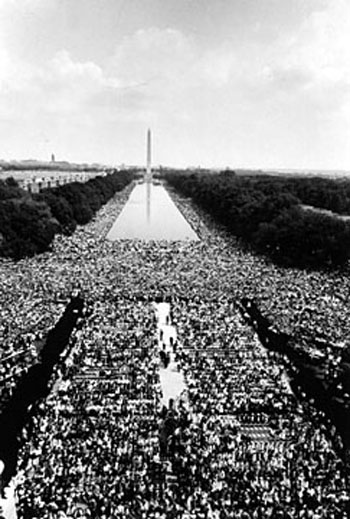



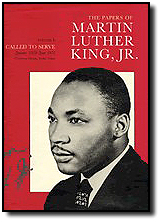 The problem of evil has always been the
most baffling problem facing the theist. Indeed, it is belief in a personal God which constitutes the problem
in all its known acuteness. At the heart of all high religion there is the conviction that there is behind the
universe an ultimate power which is perfectly good. In other words the theist says: the power that is behind
all things is good. But on every hand the facts of life seem to contradict such a faith. Nature is often
cruel. "Nearly all the things which men are hanged or imprisoned for doing to one another", says John Stuart
Mill, "are nature's every day performances. Nature kills, burns, starves, freezes, poisons."\[Footnote:] Three
Essays on Religion, p. 28.\1 Not only that, but the world seems positively immoral. If we look through the
pages of history what do we find? Jesus on a cross and Caesar in a places; truth on the scaffold and wrong on
the throne;2 the just suffering while the unjust prosper. How explain all this in the face of a good and
powerful God? If the universe is rational, why is evil rampant within it? If God is all powerful and perfectly
good why does he permit such devastating conditions to befall the lives of men? Why do the innocent suffer?
How account for the endless chain of moral and physical evils?
The problem of evil has always been the
most baffling problem facing the theist. Indeed, it is belief in a personal God which constitutes the problem
in all its known acuteness. At the heart of all high religion there is the conviction that there is behind the
universe an ultimate power which is perfectly good. In other words the theist says: the power that is behind
all things is good. But on every hand the facts of life seem to contradict such a faith. Nature is often
cruel. "Nearly all the things which men are hanged or imprisoned for doing to one another", says John Stuart
Mill, "are nature's every day performances. Nature kills, burns, starves, freezes, poisons."\[Footnote:] Three
Essays on Religion, p. 28.\1 Not only that, but the world seems positively immoral. If we look through the
pages of history what do we find? Jesus on a cross and Caesar in a places; truth on the scaffold and wrong on
the throne;2 the just suffering while the unjust prosper. How explain all this in the face of a good and
powerful God? If the universe is rational, why is evil rampant within it? If God is all powerful and perfectly
good why does he permit such devastating conditions to befall the lives of men? Why do the innocent suffer?
How account for the endless chain of moral and physical evils?
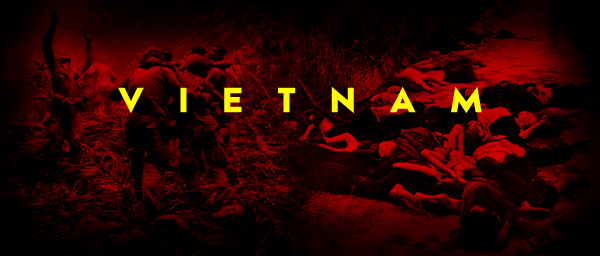
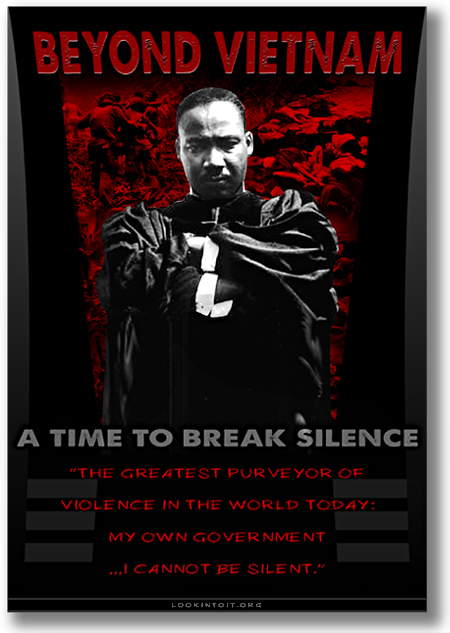






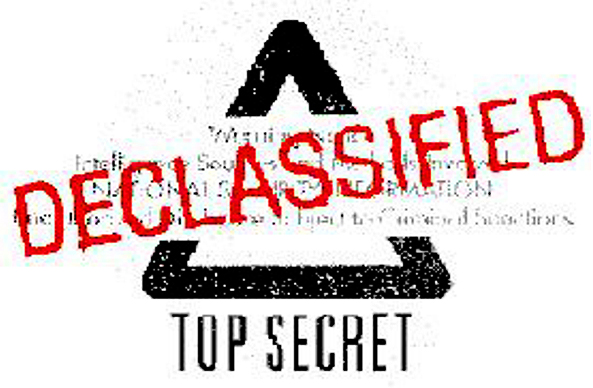 Four years into the war, senators were at loggerheads with Lyndon B. Johnson.
At the time Foreign Relations Committee meetings were held behind closed doors.
Four years into the war, senators were at loggerheads with Lyndon B. Johnson.
At the time Foreign Relations Committee meetings were held behind closed doors.
